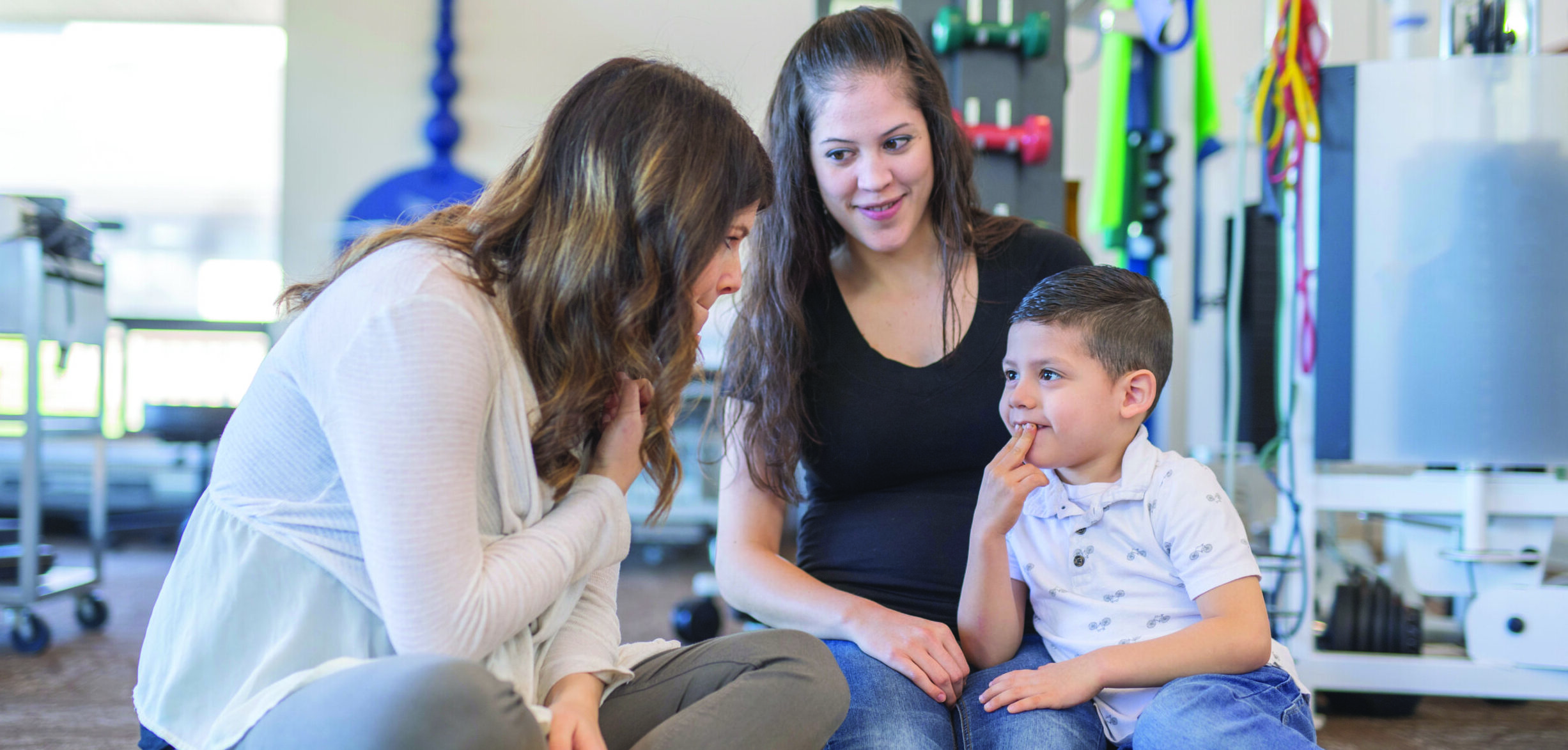

Helping You Reach Success in Your Journey
Speech Language Pathology
When a catastrophic accident or disease process affects one’s ability to speak, it can be an immensely frustrating period of adaptation and recovery. Our speech therapists offer an evidence-based, person-centered approach to meet our individual’s communication goals. We work directly with individuals, their families, and support teams to help them re-learn the skills they need to succeed in daily life outside of the clinic.
Therapeutic Interventions for Speech Therapy Include:
Alternative and Augmentative Communication (AAC): AAC includes methods used to supplement or replace speech or writing for those with impairments in communication. This can include sign language, communication boards, or electronic devices.
Articulation and Phonology: This focuses on the production of speech sounds and patterns. Articulation refers to the physical production of sounds, while phonology deals with the rules governing sound patterns in a language.
Auditory Processing Strategies: These are techniques used to improve the processing of auditory information, which can be challenging for individuals with auditory processing disorders. Strategies might include environmental modifications or specific listening exercises.
Cognitive Linguistic Skill Development: This area addresses the connection between cognitive abilities (such as memory, attention, problem-solving) and language skills. Therapy in this area may focus on improving communication skills while also addressing cognitive challenges.
Feeding/Swallowing: Speech-language pathologists often work with individuals who have difficulty swallowing (dysphagia). Therapy may involve exercises to improve swallowing function or recommendations for modified diets.
Fluency: Fluency disorders involve disruptions in the natural flow of speech, such as stuttering. Therapy for fluency disorders aims to improve the smoothness and ease of speech production.
Language Development: Language development encompasses the acquisition and use of language. Therapy in this area may focus on building vocabulary, understanding grammar, and improving comprehension and expression skills.
Speech Apraxia: Apraxia of speech is a motor speech disorder where the brain has difficulty coordinating the movements necessary for speech. Therapy for apraxia focuses on improving speech production through repetitive practice and targeted exercises.
Each of these areas may require different assessment tools, therapy techniques, and intervention strategies tailored to the individual needs of the client.
